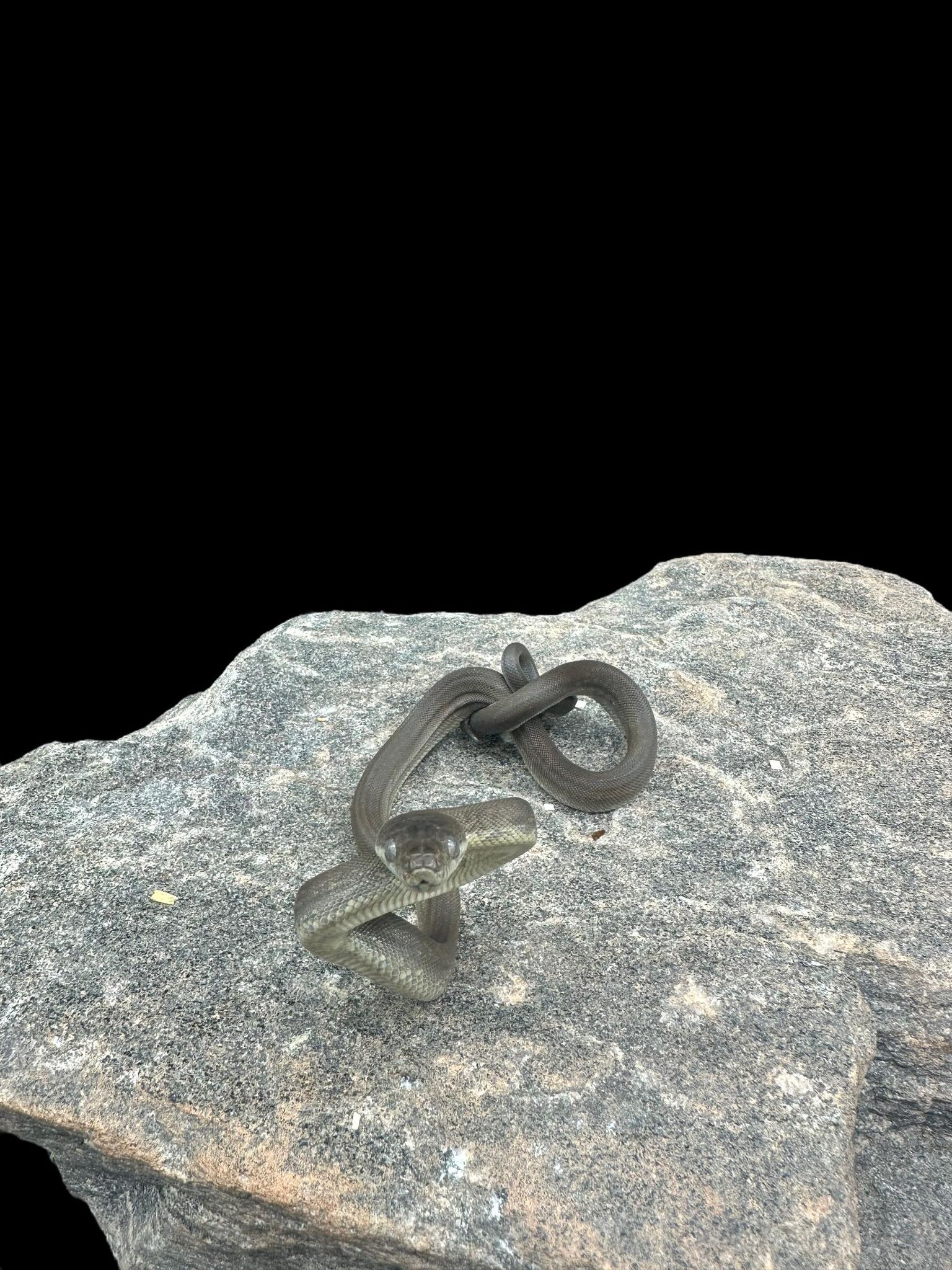Photo Disclaimer
Description
Macklot’s Python (Normal)
Liasis mackloti
Common Names: Macklot’s Python, Freckled Python, Water Python (not to be confused with Liasis fuscus)
Species Overview
-
Size: Adults typically grow 6–9 feet (1.8–2.7 m), though some females may exceed 10 feet. They are robust but not as heavy-bodied as short-tailed pythons.
-
Appearance:
-
The normal Macklot’s Python has an olive-brown to dark chocolate base colour, overlaid with irregular darker blotches and speckling.
-
Their scales have an iridescent sheen, giving them a rainbow-like shimmer under light.
-
Bellies are usually pale with some freckling, and the head is long and narrow with a distinctive profile.
-
-
Distribution: Native to New Guinea, Timor, and surrounding islands.
-
Habitat: Occupy grasslands, scrub forests, wetlands, and agricultural areas, often near water sources. They are adaptable and thrive in a variety of humid environments.
-
Behaviour: Opportunistic constrictors, feeding on mammals, birds, and reptiles. Known to be both terrestrial and semi-aquatic, frequently hunting along waterways.
Captive Care
-
Enclosure: Adults should be kept in 4–6 ft enclosures, with ample floor space, climbing branches, and hides. These snakes are active and curious, benefitting from environmental enrichment.
-
Temperature & Humidity:
-
Basking area: 88–90°F (31–32°C).
-
Ambient temps: 78–82°F (25–28°C).
-
Night drops: 72–75°F (22–24°C).
-
Humidity: Maintain 60–70%, with regular misting and access to a water bowl large enough for soaking.
-
-
Diet: Juveniles thrive on hopper mice or small rats every 5–7 days. Adults should be fed medium to large rats every 10–14 days. Some larger adults may occasionally take rabbits.
-
Behaviour in Captivity: Captive-bred Macklot’s Pythons are hardy, intelligent, and alert, though juveniles can be defensive. With steady handling and proper care, many become manageable, engaging captives.
-
Special Considerations: A naturalistic setup with climbing structures and humidity-retentive substrate supports their active lifestyle and helps prevent dehydration.
Genetics Note
-
The Macklot’s Python (Normal) is the wild-type form of Liasis mackloti.
-
While not a morph-heavy species, they are sometimes selectively bred for pattern and colour intensity, and their natural iridescence makes them attractive even in normal form.
-
Crosses with closely related Liasis species are rare but have been reported in captivity.
The Macklot’s Python is a robust, active, and iridescent python, valued for its beauty, hardiness, and engaging behaviour, making it a strong choice for intermediate keepers.

